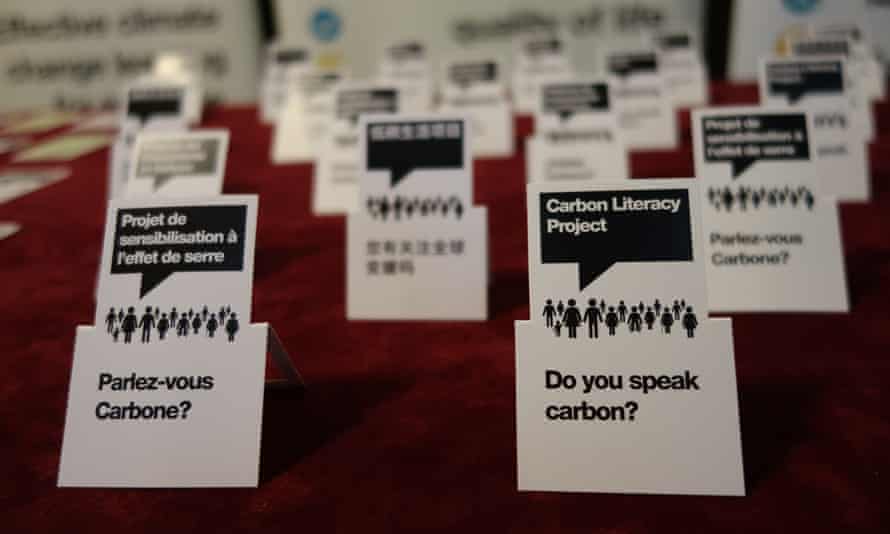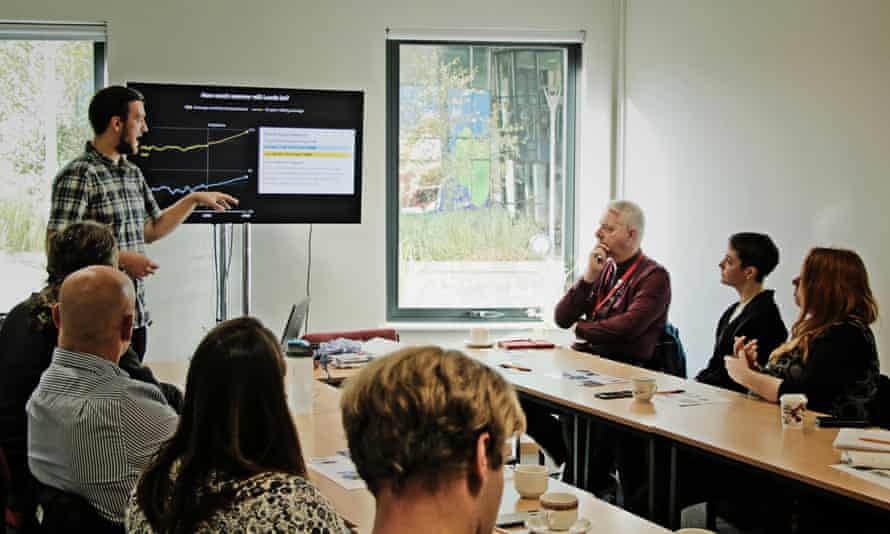From Corrie to car ads, carbon literacy training pushes climate to the fore
Project has trained more than 21,000 staff and pupils, aiming for changes on whole-organisation level

The cobbled streets of Coronation Street may not be the most obvious platform for conversations about the climate crisis, but the UK’s longest-running soap opera has increasingly turned its attention to the environment in recent years.
From smaller plot points such as Sally Metcalfe discussing climate change with her partner over dinner, to 10-year-old Liam Connor collapsing on the street from an asthma attack caused by air pollution, environmental issues frequently crop up on the show.
“Climate action just falls front and centre of what we do now, it’s part of our culture,” said Lee Rayner, the head of production at Coronation Street.
ITV is one of hundreds of organisations to have introduced carbon literacy training for its staff in recent years, and Rayner says it is a key factor behind the soap’s focus on sustainability.
“We recycle all our sets now. I have tasked someone in our editorial team to make sure that when we commission every four weeks, there is something on climate change in there,” said Rayner. “We are not a public information film but we need to reflect society, and the green agenda is part of society now.”
Research from the University of Leeds has found that carbon literacy training makes participants significantly more knowledgable about climate change and more likely to reduce emissions at work and at home.
“It’s about organisational culture, I think, the impact of social norms on what other people around you do,” said the report’s lead author, Dr Milena Buchs, an associate professor in sustainability. “But we recommend that it’s implemented on a whole-organisation level. It’s no good to just train a handful of champions who then try to convince their colleagues to make changes.”
The Carbon Literacy Project, founded in Manchester in 2011, has trained more than 21,000 people in workplaces, communities and schools. Participants take a one-day training course covering the science of the climate crisis and potential solutions, and commit to taking two actions – one in their own life and one that involves people around them – to reduce emissions.
“We were talking to people and thinking: wouldn’t it be great if people just got it on climate change? If people instinctively just knew what was good and bad, and these are the kinds of things we need to do,” said Dave Coleman, the managing director of the project. “We ran 15 pilot courses at first, and the more people did it the more enthusiastic they got and the more people started to help us. It started to build momentum and after about two years, 1,000 people had been through the process.”

The Carbon Literacy Project has created a standard to ensure all training courses deliver the required basic knowledge, but people are empowered to deliver the training themselves and tailor it to their audience.
The project is cautious to avoid any companies that it feels may use the training as a form of greenwashing, seeking to appear to be taking action on the climate crisis without following through. But it does not shy away with working with companies that by their very nature are polluting.
The car advertising company Auto Trader aims to have 100% of its staff carbon literate within two years. “It’s an unlikely business in a way [to do carbon literacy training], we get that feedback a lot. But in my view I think it’s even more important,” said Christos Tsaprounis, the head of people and culture at Auto Trader. “The automotive industry needs to change and we are in an excellent position when it comes to supporting the sale of electric vehicles. It’s by having a workforce as environmentally aware that we can help make this change.”
At Opera North in Leeds, all 250 staff members have taken the training and they are putting on a show next season using a fully recycled set. “Arts and cultural organisations are uniquely placed to do something about the climate crisis, because I feel like talking about facts and statistics has only got us so far,” said Jamie Saye, a senior technician who has become a carbon literacy trainer and is working across multiple organisations.
“Having the carbon literacy training means if we are going to be starting to influence our audience on this, we can come from a position of knowing what we’re talking about. With everybody pulling in the same direction it really helps to make the change.”